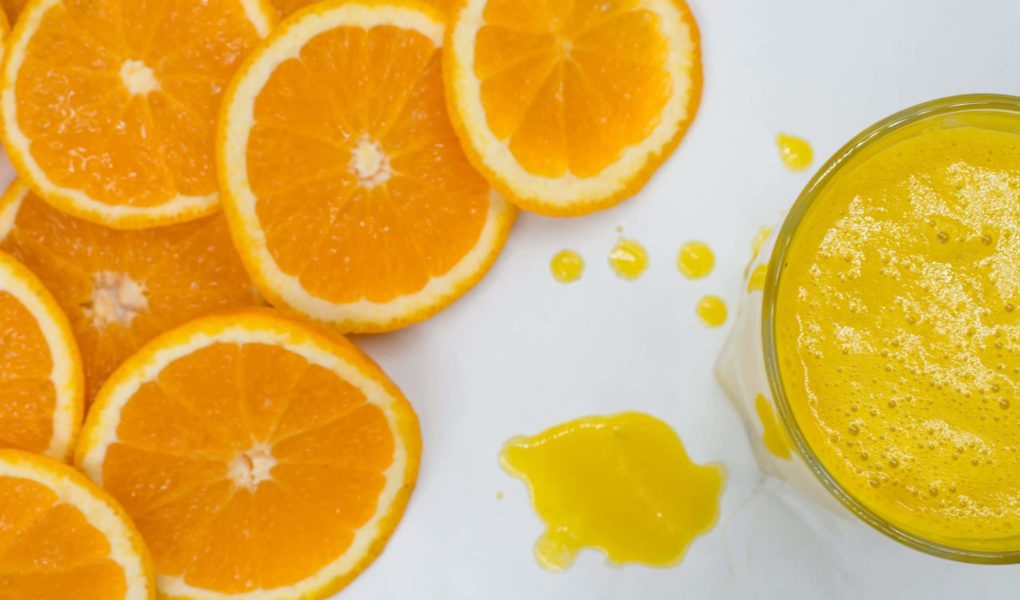You will be happy to know that Vitamin C not only restores collagen but maintains it too. This little rock star nutrient is loaded with health benefits and is responsible for a lot of functions inside the body that help maintain health and vitality. Since the body does not produce its own vitamin C, it is crucial to obtain as much of it from a daily diet. A balanced diet consisting of a variety of fresh fruit and veggies such as oranges, strawberries, kiwi fruit, papayas, avocados, bell peppers, and broccoli should generally provide a sufficient supply of daily vitamin C. It is this sufficient supply of vitamin C that helps synthesize and restore the much-needed collagen in our bodies. This article looks at how vitamin C help with collagen production and how collagen can be boosted naturally. There are 2 more nutrients that play a critical role in the production of collagen but are rarely mentioned, which will be revealed too.
Why is collagen production important
Collagen is one of the most abundant proteins in the body. Think of it as a glue-like substance that helps support and strengthen connective tissues. It is found in the skin, muscles, ligaments, tendons, intestinal lining, blood vessels, bones, and eyes. In short, it keeps us looking and feeling good and more youthful. As we age, the production of collagen wanes. This is most notable when joints become stiff or when lines and wrinkles start to form on the face. Fortunately, there are simple steps we can take to help boost collagen production as well as having vitamin C in our arsenal to help with collagen production.
Vitamin C helps with collagen production
Fibroblasts are the most common type of cells in the connective tissues of the body. These cells are responsible for the formation of collagen in the skin’s dermis. For the fibroblasts to produce collagen, vitamin C has to be present to convert proline and lysine into hydroxyproline and hydroxylysine. These two hydroxylases help keep collagen stable and have been shown to be dependent on vitamin C for collagen formation. Not only has it been found that vitamin C helps with collagen production, but also stimulates its production.
What causes collagen loss
As we get older, our collagen levels decrease every year. It may be hard to notice at first but when we start to see the first signs of lines and wrinkles appear, we can tell it’s falling. Joint pain, stiff ligaments, and tendons weakening muscles, and gastrointestinal issues may also be caused by a collagen decrease. Other contributing factors include:
Vitamin C deficiency
Not getting enough vitamin C from our diets can cause a decrease in collagen levels. Older people or people with compromised immune systems may not be absorbing nutrients as sufficiently or synthesizing them as effectively. If this is the case, speak to your doctor about the best way forward. You may have to change your diet or use dietary supplements if you remain deficient since vitamin C is crucial in collagen production.
Smoking
Smoking causes premature aging by restricting blood flow. This prevents oxygen and important nutrients from optimally reaching the skin and other tissues in the body. Smoking also depletes our vitamin C levels, which we need to help with collagen production.
High sugar intake
You may want to cut back on your sugar intake because sugar binds with collagen and makes it become stiff. The result is that skin may appear drier and aged.
Cut down on the coffee
Drinking coffee might not be so bad after all apparently. Studies have shown that consuming coffee might even make us live a little longer. The effects of caffeine on the skin, however, are less positive. This study shows that caffeine inhibits the biosynthesis of collagen.
Ultraviolet light from the sun
Protect your skin from the damaging effects of the sun’s UV rays by eating foods rich in vitamin C, using a good topical vitamin C cream, and applying a good non-toxic SPF regularly.
Toxin exposure
Water, air, and food pollution may also contribute to the breakdown of collagen. Maintaining adequate levels of vitamin C can help with precious collagen production by mitigating the negative effects of these external factors.
Easy ways to help boost collagen production
Increase your protein intake
Amino acids, lysine, and proline, together with vitamin C are crucial in the production of collagen. Protein-rich sources such as meat, dairy, eggs, poultry, and fish help supply the amino acids the body needs. Older people may need to up their protein intake to benefit from collagen production. Consult your doctor or nutritionist about your individual protein needs.
Consume collagen-boosting nutrients
Your body needs the right nutrients to make collagen. Since vitamin C helps with collagen production, consuming a variety of citrus fruits and leafy green vegetables becomes key. Plant sources loaded with Vitamin C include the Acerola Cherry and the Camu Camu berry. More common kiwi fruit, papayas, strawberries, lemons, oranges, broccoli, and bell peppers are good sources too.
Hyaluronic acid is also good for collagen building in the skin. Foods that contain this compound, include fish, poultry, and meat. Plant sources include root vegetables, avos, and nuts.
Have you tried bone broth before? It’s a super nutritious liquid brew of bones and tissues from mainly, cow, chicken, or fish and a good source of collagen too. Cooking turns the collagen, contained in the bones and tissues into gelatin, which breaks down into collagen in the body. Bone broth is good for gut, joint health, and skin.
Take collagen-boosting supplements
It’s been referred to as a ‘fountain of youth’. Drinking Collagen peptides or Hydrolyzed collagen (it is the same thing) powder has been shown to increase collagen levels in the body. The oral intake of specific collagen supplements was also shown to reduce skin wrinkles and help rebuild the skin matrix. There are many collagen supplements on the market. Be sure to choose a high-quality product sourced from pasture-raised cattle, third-party testes, and additive-free. Hydrolyzed forms of collagen are the best since the collagen molecule is smaller and hence better absorbed.
Since we know that vitamin C helps with collagen production, adding this nutrient as a supplement to your collagen-boosting arsenal can be beneficial. Some collagen supplements come with added vitamin C already.
Try red light therapy
Red light therapy, also known as LLLT (Low-level laser light therapy) is a rejuvenating, non-invasive therapy that can easily be done in the comfort of your own home. It is beneficial in the treatment of lines and wrinkles by stimulating the production of collagen.
Wear a good sunscreen
UV rays break down precious collagen in the skin by penetrating the dermis. Since our bodies do not produce a lot of collagen as we age, protecting the collagen we do have is important. Wear a good mineral sunscreen to help protect against UV radiation and damage. Mineral sunscreens made from zinc oxide and titanium oxide are healthier choices because they are less likely to be absorbed into the bloodstream.
Retinol
Retinol has been around for a while and for good reason. It has been shown to make a noticeable difference by boosting collagen production in the skin. Retinol may cause skin irritation in some people, so it is best to start by using very little. Chat to a dermatologist, who will be able to advise you on how to use retinol and any skin concerns you might have.
Last thoughts on how does vitamin C help with collagen production
Maintaining good levels of collagen is vital for good health. After the age of 20, the production of collagen in our bodies starts to decline, and with it also the body’s ability to repair connective tissue, ligaments, blood vessels, bones, and skin. Fortunately, there are steps we can take to maintain and rebuild collagen levels. We know that vitamin C helps collagen production and in combination with amino acids such as proline and lysine, becomes a powerful collagen builder. Eating collagen-rich foods and supplementing with collagen are great ways to keep you feeling and looking more youthful.
Taking dietary supplements should always be done alongside the guidance of a medical practitioner. This article was not written or overseen by a medical professional and should not be viewed as advice or diagnostic information.
Enjoyed this article? You might like these too.
When is the best time to take vitamin C and collagen?
How much vitamin C is needed for collagen production?
Does vitamin C restore collagen?
Can I mix vitamin C serum with collagen serum?
Cautionary note: Not any of these statements have been evaluated by the Food and Drug Administration. The content of the articles and the products recommended are not intended to diagnose, treat, cure or prevent any disease or health issue. The intention is also not to imply that vitamins or any dietary supplements are substitutes for a balanced diet or are in any way more beneficial or superior to dietary nutrients. It is also not intended to imply that general or normal health may be affected by not taking dietary supplements or receiving intravenous vitamin C infusions.



